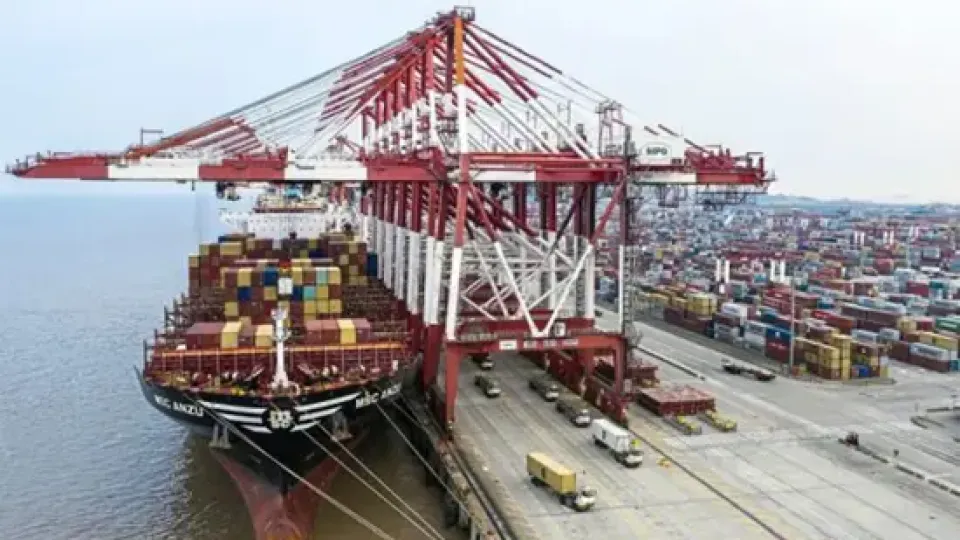June 5, 2025
PETALING JAYA – With just one month remaining before the United States imposes a 24% tariff on all Malaysian goods exported there, exporters are expressing concerns that more than half of them will be negatively affected if Malaysia fails to secure a deal.
The Federation of Malaysian Manufacturers (FMM) said about 52% of local exporters expect demand to decline if the United States proceeds with its tariff hike, with nearly half anticipating profit margins to be slashed by over 30%.
Its president Tan Sri Soh Thian Lai warned that such pressures could force some companies, especially those in cost-sensitive sectors like electrical machinery services (EMS), which supports US-linked manufacturing operations in Malaysia, to scale back operations.
“While the full financial impact and potential job losses remain difficult to quantify, FMM cautions that the combined effects of order cuts, shrinking margins and prolonged cost pressures could have serious repercussions for the country’s export-reliant industries,” he said when contacted recently.
In April, the United States offered a 90-day pause to negotiate new country-specific rates based on trade imbalances.
The window is expected to close early next month.
Soh added that even if Washington settles for a lower tariff range of 10 to 15%, Malaysia would still be at a competitive disadvantage compared to countries with preferential US market access, raising concerns over a possible long-term shift in sourcing decisions by American buyers.
“Since April 2025, all Malaysian exports entering the United States have already been subjected to an across-the-board 10% tariff, which has added considerable pressure on companies, especially those whose products previously enjoyed low or zero tariffs.
“A further escalation of tariffs would significantly deepen this impact and pose a serious threat to Malaysia’s export performance,” added Soh.
At the same time, FMM lauded the Investment, Trade and Industry Ministry (Miti) for its proactive efforts through the National Geoeconomic Command Centre Task Force and its recent trade mission to Washington, DC, which included negotiations with the US Trade Representative.
FMM said that these engagements are crucial for seeking exemptions from existing levies on products such as steel and aluminium.
Socio-Economic Research Centre executive director Lee Heng Guie said that based on its engagement with local players, many businesses are still closely monitoring how the situation unfolds.
“What we’ve observed since April is that some local exporters, particularly in the electrical and electronics (E&E) sector, have been front-loading their shipments to the United States to beat the higher tariff deadline.
“This spike in export numbers is likely to continue until May or perhaps early June, based on feedback from businesses and buyers we’ve spoken to,” he said.
However, he added that some US buyers are taking a more cautious approach.
“They are delaying shipments and deliveries, adopting a ‘wait-and-see’ attitude regarding the final tariff decision.
“The concern is that if the tariff jumps to 24%, they may not be willing to absorb that additional cost.
“On the other hand, if the outcome is less than or remains at 10%, they would prefer to wait and only proceed once the situation is clear,” said Lee.
He said there were also ongoing negotiations between US buyers and Malaysian sellers on how to manage the tariff burden.
Lee stressed that the adjustment process will likely continue well beyond the 90-day pause, as businesses prepare for various outcomes.
Malay Economic Action Council senior fellow Ahmad Yazid Othman said, in principle, the council’s position is that Malaysia must accept that tariffs would be imposed.
“We hope that the government will do more to spur domestic consumption and be prepared that tariffs will increase.
“As an exporting country, not every sector will be equally affected, which is why we shouldn’t put all our eggs in one basket.
“We need to diversify and spread the risk by investing in more economic opportunities across other sectors, especially those not reliant on exports. I believe there’s a silver lining in this situation as well,” he said.

